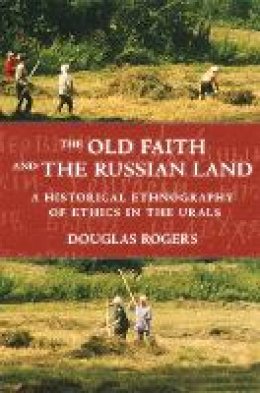
The Old Faith and the Russian Land: A Historical Ethnography of Ethics in the Urals
Douglas Rogers
The Old Faith and the Russian Land is a historical ethnography that charts the ebbs and flows of ethical practice in a small Russian town over three centuries. The town of Sepych was settled in the late seventeenth century by religious dissenters who fled to the forests of the Urals to escape a world they believed to be in the clutches of the Antichrist. Factions of Old Believers, as these dissenters later came to be known, have maintained a presence in the town ever since. The townspeople of Sepych have also been serfs, free peasants, collective farmers, and, now, shareholders ... Read more
Drawing on long-term ethnographic fieldwork and extensive archival and manuscript sources, Rogers argues that religious, political, and economic practice are overlapping arenas in which the people of Sepych have striven to be ethical—in relation to labor and money, food and drink, prayers and rituals, religious books and manuscripts, and the surrounding material landscape. He tracks the ways in which ethical sensibilities—about work and prayer, hierarchy and inequality, gender and generation—have shifted and recombined over time. Rogers concludes that certain expectations about how to be an ethical person have continued to orient townspeople in Sepych over the course of nearly three centuries for specific, identifiable, and often unexpected reasons. Throughout, he demonstrates what a historical and ethnographic study of ethics might look like and uses this approach to ask new questions of Russian, Soviet, and post-Soviet history.
Show LessProduct Details
About Douglas Rogers
Reviews for The Old Faith and the Russian Land: A Historical Ethnography of Ethics in the Urals
Alexander King
Journal of the Royal ... Read more
